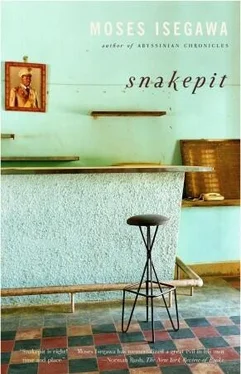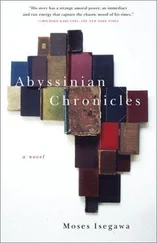“The British don’t understand their own accents. When the Irish talk Irish English or the Scots Scottish English, nobody understands them. You speak ten times more clearly than those people, dear.”
The luxury and magnificence of the city sat in her mind like a bull in a hut. A taxi had driven them through the city to the Grand Empire Hotel, a magnificent affair with marble floors, glittering lifts and cathedral-like rooms. All traces of havoc wreaked by the IRA bomb were gone, blown away by money and technology. Anyone who did not know the story of those killed or injured there could never guess. It was the Western way: tragedy erased and carted away into library files where it lost bite, later coming off the page like a shadow, bland in its weightlessness, almost a figment of the chronicler’s imagination.
“But you are paying a fortune for this!” Babit gasped in horror. “How are we going to relax in the midst of this?”
“Close your eyes and think. A few weeks ago you were looking for me in a heap of bodies. Right now we are moving in top circles. It is just life, dear,” he said, patting her on the shoulder.
“Everything is happening so fast! Captivity! This! I guess I am too happy for words.”
“That is what happens when a girl finds a good guy, and a guy finds a good girl. Leave it all to me. If you see a dress you want, we buy it. We are here to enjoy the best that is available.”
During the first week, they did nothing but eat, drink, go out for walks and luxuriate in their surroundings. They loved cruising through the city in big cars, neon lights gliding by like a string of coloured balloons, lighted jewellery shops flashing icy diamonds. They loved the feeling of insulation from the city’s mundane problems. It felt wonderful not to have to worry about their security.
During the second week, Damon Villeneuve got the time to see them. He was a Labour politician representing a poor London borough. He was a tall, thin, small-headed man with green eyes in a serious face. They found him in the hotel’s restaurant. When he saw them, he rose, stretched out his hand and said, “Mr. Bat Katanga, I presume.”
“You must be Damon Villeneuve, the rogue MP found with a crocodile purse on his head and a pipe in his hand,” Bat joked, smiling from ear to ear. He gripped the proffered hand, embraced the man, and patted him on the back.
“And this must be. .”
“Please meet my girlfriend.”
Babit and Villeneuve shook hands, exchanged polite words, and the trio sat down. Babit found Villeneuve’s accent hard to understand and wondered if he was Irish or Scottish. He seemed to swallow letters where she stretched them out. He understood her well, but the exchange remained laboured. This is our saviour, this is our saviour, this is our saviour, she thought. Before, it had been a faceless person, without a voice, without human qualities; now he sat in front of her, and she did not know what to do. She wanted to embrace him, to kneel in front of him, to rub his feet, but felt it would be highly improper.
Bat felt grateful, as grateful as he had ever felt in his life. For a moment he felt very close to Villeneuve. It seemed amazing that his only real friend at Cambridge had turned into his saviour. He remembered him in his house captain days. He had always been steady, reliable, capable. Nothing seemed to bother him. He lacked the charisma of a born leader, but he got things done. It felt strange to be this deep in debt to somebody. He felt incapable of repaying him. The words that came to his mind felt limited in range, jaded. “You saved my life, Damon. The noblest thing you will ever do. The biggest debt I will ever have. Thanks.” At that moment he remembered that Damon used to love “I Can’t Get No Satisfaction.” He started singing it, right there in the restaurant, clapping his hands for time, putting in quite a bit of soul, stretching the “ooohs and aaahs.” Damon first listened as if he could not believe his ears, then he joined in singing the higher notes. Babit looked on for some time with her jaw hanging open till she started clapping. Bat seemed totally free, floating, all inhibition gone. At the end, with Bat sweating and smiling and feeling very happy, they sat down.
“I will settle for that thank you. I haven’t been serenaded in ages. It is good for a politician to be thanked once in a while. We mostly get dog pooh in the letterbox or on the lawn as a reward.”
“You should have looked for a proper job,” Bat grinned.
“Said my dad. But then you would be dead or still in detention. Hey, life has been kind to us. We can’t complain.”
“It is not every day that a Conservative MP is found wearing a purse on his head,” Bat said, trying to imagine the dead honourable member with the garbage bag on his head.
“When I got your sister on the line, I thought, What a waste of life! When such a thing happens to somebody you know, it feels like a ton of newsreels dumped on your head. You start panicking and calling up people.”
“I am sure you’ve got a huge phone bill waiting for me.”
“It depends on how deep your pockets are.”
“I am not too badly off.”
“I can see where you are staying.”
“I can make a donation to your office. Anonymously, that is.”
“We need all the funds we can lay hands on. There are no bigger beggars in the world than politicians,” Damon explained, smiling self-deprecatingly.
“By the way, I hope you still have that car you had at Cambridge. I want to buy it.”
“Thieves took it a long time ago,” Damon said, raising his hands palms-up in the universal sign of resignation.
“It is a shame. I wanted to take it back to Uganda as a memento.”
“Have you explored London, Mrs. Bat?” Damon asked, turning to Babit.
“A little bit. It is amazing.”
“That is the fun part. You should come and see the area I represent. Unemployment, poverty, riots, demonstrations, parades by the extreme right. We have it all.”
“It must be quite exciting. Do you go around in armoured cars?” Bat jested.
“What is extreme right?” Babit said, looking at Bat, who wanted to burst into laughter.
“I can introduce you.”
“Damon, please. We are here on holiday, not on a journey of exploration. You can save us the smell of your sewers.”
“I want to meet them,” Babit said with genuine curiosity.
“What do you want? Shit thrown in your face?” Bat asked angrily.
“We came to see London, didn’t we?” she insisted stubbornly.
“Fine, fine, fine,” Bat said defeatedly.
“Don’t worry, it is only a circus,” Damon said mischievously.
THE TRIP to the housing estates, which reminded her of flats in Bukoto and Naguru, made Babit realize how well they were living at the Grand Empire. It had in a way been too good to be true, lacking in the two-sidedness of life as she knew it. She had craved the familiar pressure of the world, the evidence of poverty, social unrest, the tension generated by different people living together. She had glimpsed some people sleeping rough, but there had been something fanciful, unreal about it. Faced with the baldheaded men, the dead eyes, the ugly black clothes sown with spikes, the outlandish boots, the sky-bound fists, she felt afraid despite being under police protection. They shouted abuse, spat, waved banners and placards, and raged relentlessly. Taking into account that they had never killed people in big numbers, they looked like cartoons of the State Research Bureau, who, Babit was sure, would frighten the ugly clothes off their backs. The cartoons looked more insidious only because they were more organized, using word to spread their message whereas the Bureau relied more on their guns and had no ideology to pass on to the next generation. In a few years the Bureau boys would be dead, whereas these cartoons would go on living, slowly consolidating their power. Babit did not fear or hate them. Having lived with the Bureau, nothing seemed able to touch her, and anyway she had no plans of settling in London.
Читать дальше











